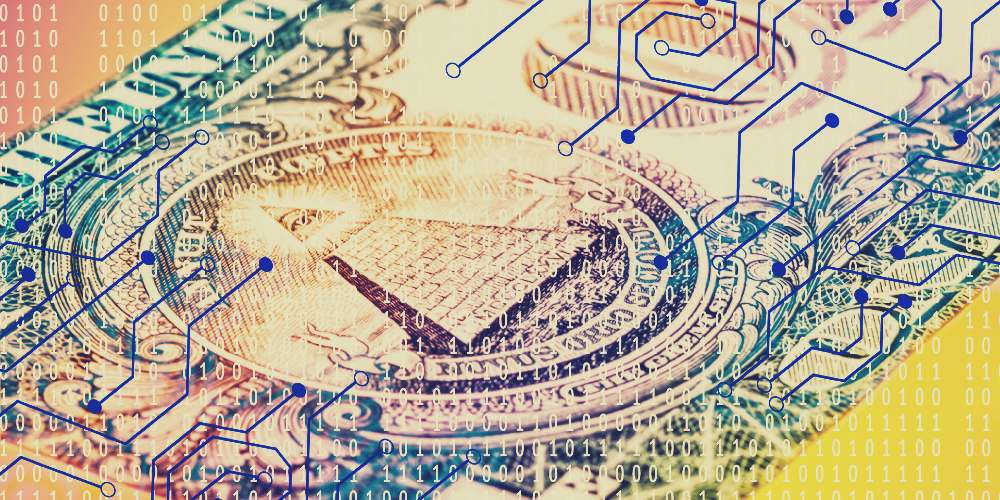Central bank digital currencies (CBDCs) pose a foundational threat to America’s economic systems with absolutely no upsides, according to a recent analysis from the Cato Institute, which stressed that a U.S. CBDC will threaten citizens’ “core freedoms” from financial privacy to personal liberty.
Even though there are no valid reasons for the U.S. government to issue a CBDC when “the costs are so high and the benefits are so low,” significant efforts are being made by government officials and central bankers to launch the digital currency “in a bid to solidify government control over payments systems,” said the institute’s assessment report published Tuesday.
“Beef Steak” – our most popular survival beef product – is on sale now.
Promo code “steak40” at checkout for 40% off!
“As entrenched as this effort may already be, a U.S. CBDC would ultimately usurp the private sector and endanger Americans’ core freedoms.
“Therefore, it should have no place in the American economy. Congress should explicitly prohibit the Federal Reserve and the Department of the Treasury from issuing a CBDC in any form.”
While the Federal Reserve has not made any definitive plans or fixed a timeline regarding the launch of a CBDC, the agency has not concealed its enthusiasm for the project. Purported features like “safer” and “faster” are heavily touted, whereas focus on cons are rather limited.
The Biden administration has also thrown its support behind the CBDC project, releasing a paper last September analyzing the possibilities of introducing a digital dollar.
“If the United States pursued a CBDC, there could be many possible benefits, such as facilitating efficient and low-cost transactions, fostering greater access to the financial system, boosting economic growth, and supporting the continued centrality of the United States within the international financial system,” said the White House Office of Science and Technology Policy detailing the technical framework possibilities for a U.S. CBDC.
Financial Freedom and Privacy
The public sentiment in the United States is in the majority against introducing a CBDC in the country, evidenced by over two‐thirds of the 2,052 comment letters written by concerned citizens to the Fed opposing its plans for a digital dollar. Based on CATO analysis, commenters were concerned about CBDCs posing “a substantial threat to financial privacy, financial freedom, and the very foundation of the banking system.”
As a CBDC gives “the federal government complete visibility into every financial transaction by establishing a direct link between the government and each citizen’s financial activity,” the project is a direct attack against basic privacies as protected by the U.S. Constitution.
Any buffer—currently provided by institutions like banks and payment services—between the average citizen’s financial activity and governmental intrusion would immediately cease to exist as “all financial data would be only a keystroke away.”
Such unrestrained access leads to the inevitable establishment of governmental control over such activities, and it could be “preemptive (prohibiting and limiting purchases), behavioral (spurring and curbing purchases), or punitive (freezing and seizing funds).”
For example, the government could limit purchases to “essential” goods during state-imposed lockdowns, impose gun control, or even freeze an individual’s ability to access their own money.
“Aside from the basic programmability that a CBDC would offer for social and political control, one of its most common features is the ability to pay both positive and negative interest rates to curb and spur purchases,” which is impossible with cash—one of the main reasons why CBDC proponents are calling for eliminating cash from the system.
Free Markets Endangerment and Cybersecurity
Federal Reserve vice chair Lael Brainard had said that if CBDCs were widely adopted, it would disrupt the entire banking system because people would make direct central bank deposits bypassing retail institutions.
-
Learn the TRUTH about Gold IRAs and how most precious metals companies play dirty.
Although Fed researchers claim CBDCs offer a “helpful competition to the banks,” CATO concludes that the most probable outcome will be people leaving traditional banks as “it is difficult (if not impossible) to compete with the government.”
In such a scenario, CBDCs will have a monopolistic hold over the market. CATO pointed out that this is one of the reasons why governments around the world have been keen on eliminating alternative payment avenues like cryptocurrencies.
Similar to crypto, a disadvantage of using CBDCs is that they are prone to cybersecurity breaches and malicious hacking. A centralized digital dollar makes a very “attractive target for cyberattacks by giving threat actors a prominent platform on which to focus their efforts.”
While attacks on banks are not uncommon, it pales in significance when a CBDC breach exposes financial details of 333 million Americans.
FedNow and CBDC
On March 15, the Federal Reserve announced the FedNow Service, which will start operating in July. FedNow offers a nationwide “instant payment solution” for participating financial institutions and their industry partners. Those using the service can “send and receive instant payments at any time of day” with full access to funds immediately.
Fed governor Michelle Bowman said last year that FedNow could weaken CBDC-resistance via offering some of the same basic services of a digital dollar—a first step toward full CBDC adoption.
“FedNow appears to be a prototype CBDC,” Jordan Schachtel, publisher of “The Dossier” on Substack stated in a tweet. “While instant, 24/7 payments seems good, there’s implications to leaning into credit-based system. FedNow can quickly transform to a surveillance system.”
CATO concludes the report by recommending Congress to limit the Treasury Department’s authority to expand existing offerings and prohibit the agency from issuing a CBDC, and offering or maintaining accounts on behalf of individuals. This is done to prevent the agency from “further encroaching on the private sector” despite promises of financial inclusion and faster payments.
Article cross-posted from our premium news partners at The Epoch Times.



